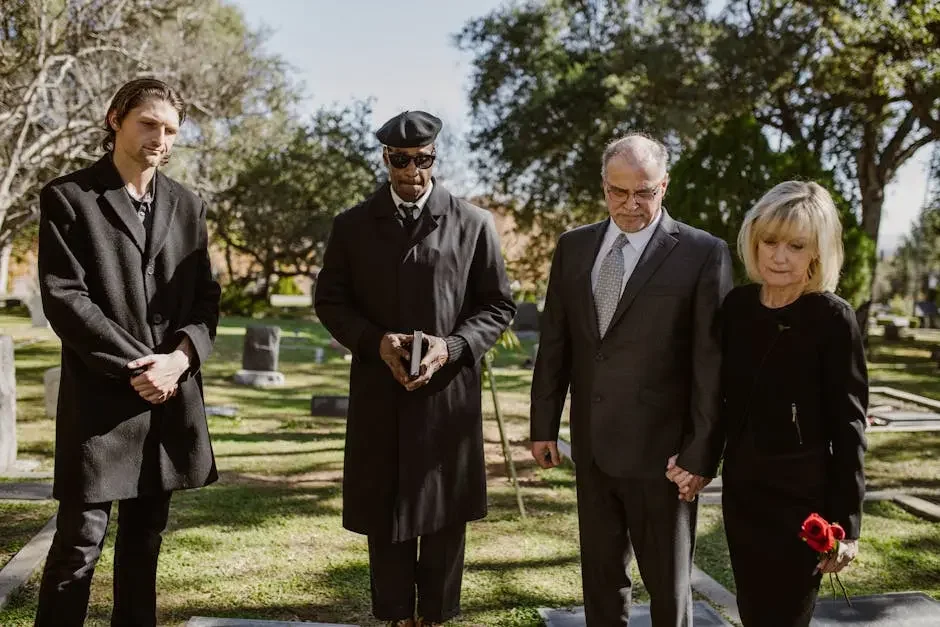12 Essential Tips for Choosing the Right Celebrant Services for Your Memorial
Choosing the right celebrant services for a memorial can significantly impact how you honor and remember your loved one. Navigating through the many options might seem overwhelming, but fear not! Here's a simple guide to help you make an informed decision.
1. Understanding the Role of a Celebrant
Before beginning your search, it’s essential to understand what a celebrant does. They officiate the ceremony and work with you to create a memorable service that reflects the life and beliefs of your loved one. Choosing a celebrant is an opportunity to have a personalized service, free from the traditional constraints, allowing a more meaningful and comforting atmosphere.
Celebrants bring unique elements to memorials, such as storytelling, themed ceremonies, or symbolic rituals which resonate deeply with families. Having a celebrant means having someone who respects the individuality of each life and can translate that into a memorable journey of remembrance. By understanding the celebrant's role, you can better appreciate how their services can etch lasting memories in your heart.
2. Determining Your Needs and Preferences
Take some time to consider what style and tone you want for the memorial. Reflect on the personality and wishes of the deceased to determine your preferences for the ceremony. Would a formal service suit your needs, or perhaps a celebratory and relaxed gathering would better reflect your loved one’s life?
Remember, the ceremony should embody the essence of your loved one’s life and values. Ask yourself questions that can help clarify your preferences: Would any specific cultural or spiritual elements be significant? How can we incorporate personal stories or achievements? These considerations will direct you toward a celebrant whose specialty aligns with what you envision.
3. Researching Potential Celebrants
Research various celebrants in your area. Look for online reviews and ask for recommendations from friends or family members who have been through similar experiences. Many people have found success using dedicated platforms that specialize in connecting families with potential celebrants offering tailored services.
Don’t hesitate to reach out to trusted community contacts or local funeral directors who often have a list of recommended celebrants. By gathering as much information as possible, you ensure every option is explored, allowing you to make a confident decision. One way to streamline this is by preparing a checklist of your most important criteria as you contact different celebrants.
4. Checking Qualifications and Experience
Confirm that any potential celebrant has the proper qualifications and experience. This can include certifications and a history of conducting memorial services. Experienced celebrants often have portfolios showcasing various ceremonies they've designed, which can help you see their range and potential fit for your occasion.
In addition to qualifications, inquire about their ongoing training or involvement with professional celebrant networks. Certification programs often demand continued education, ensuring celebrants remain up-to-date with modern practices and client-focused approaches in diverse ceremonial formats.
5. Meeting in Person or Virtually
Arrange a meeting with potential celebrants to discuss your needs in more detail. This meeting can help you gauge their personality and determine if they’re the right fit for your service. These initial consultations can be held either in person or virtually, offering flexibility in times of travel or health concerns.
During these interactions, be observant of their willingness to listen and adapt to your family's unique needs. Some families have shared how substantial these meetings were in feeling assured that their chosen celebrant understood their vision and was committed to delivery.
6. Discussing Ceremony Structure
Talk about how the ceremony will be structured, including timing, any readings or music that will be included, and other elements tailored to your loved one’s interests or background. Discussing these details upfront gives the celebrant clarity on your expectations and allows them to propose creative ideas that align with your desires.
Consider showcasing aspects of your loved one’s life that were particularly cherished: favorite poems, quotes, or even anecdotes shared by close friends. Building the ceremony structure collaboratively can reflect both respect and authenticity, making it deeply resonant for all attending.
7. Evaluating Communication and Flexibility
Observe how effectively the celebrant communicates and how flexible they are with changes to the ceremony plan. This will be crucial during the planning process. Flexibility can be vital, especially when dealing with different family dynamics or when unexpected changes arise closer to the event.
Strong communication skills are often an indicator of a celebrant’s professionalism and dedication. When celebrants demonstrate both clear and empathetic communication, it offers reassurance to grieving families that their loved one’s ceremony will be executed with care and precision.
8. Discussing Fees and Services Offered
Be clear about the pricing of their services and what is included. Confirm any additional costs for travel or extra services upfront. Budget considerations can impact your choice, so aligning your financial expectations with what is available is beneficial.
Also, explore potential packages or flexible options for services that can accommodate various needs. Making certain that all financial aspects are agreed upon and documented ensures a smooth process without surprises later on.
9. Seeking Samples of Previous Work
Ask to see samples of previous ceremonies they've conducted. This will give you an idea of their style and how they handle different types of ceremonies. Samples can come in various formats—including written scripts, video recordings, or testimonials—which can vividly depict their approach and expertise.
Evaluating these samples provides insight into their creativity and ability to adapt to diverse needs. It also reinforces the commitment to crafting a personalized service that uniquely honors the life and journey of your loved one.
10. Trusting Your Instincts
Ultimately, trust your instincts when you make your choice. If a celebrant feels right, they likely are the right choice for you and your family. Often, our initial responses to their demeanor, empathy, and understanding indicate a match that goes beyond credentials.
Many families emphasize feeling an innate sense of alignment with their chosen celebrants, reinforcing the importance of personal rapport in these delicate matters. A celebrant’s ability to offer genuine comfort and respect can make all the difference in celebrating a life well-lived.
11. Making the Final Decision as a Family
Discuss your options with family members to ensure everyone is comfortable with the choice. Their input can be invaluable in making the final decision. Gathering the perspectives of those who knew the deceased best can help reinforce the choice of celebrant, creating a unified front for the service.
Remain open to differing opinions as they might bring up points or perspectives you hadn’t considered. Ultimately, coming together as a family supports the creation of a ceremony that speaks to collective love and memory.
12. Preparing for the Ceremony
Work closely with the chosen celebrant to finalize the details and ensure everything is prepared for the day. This collaboration will help to eliminate any last-minute stress. Continual communication with your celebrant provides an opportunity to address any queries or new ideas that might enhance the service.
By the time the memorial day arrives, collaboration with a trusted celebrant ensures a seamless event tailored to your loved one’s legacy. Every detail, from arrival times to ceremonial flow, should reflect the thorough and empathetic planning you embarked on together.


